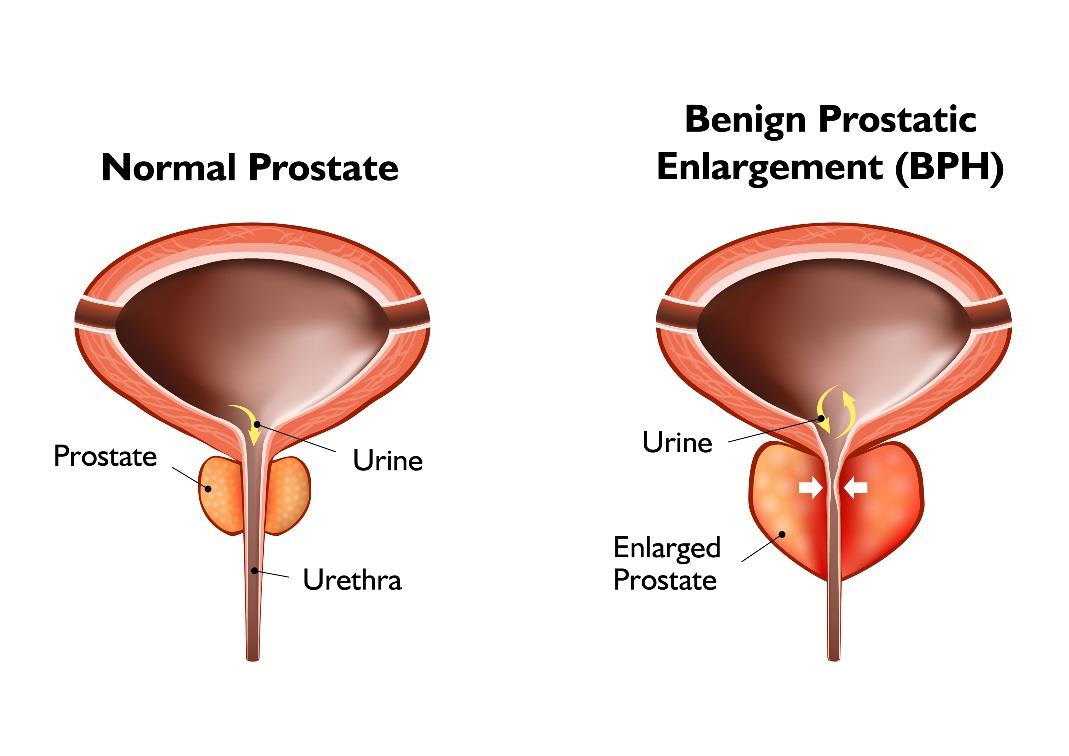Benign Prostatic Hyperplasia (BPH)
What is BPH?
Benign Prostatic Hyperplasia, or BPH, is a common condition in which the prostate enlarges as men get older. BPH affects over 40 million Americans and over 500 million aging men worldwide. Over 40% of men in their 50s and over 70% of men in their 60s have BPH. While this is a benign condition and unrelated to prostate cancer, it can greatly affect a man’s quality of life.
As the prostate enlarges, it presses on and blocks the urethra, causing bothersome urinary symptoms such as:
- Frequent need to urinate both day and night
- Weak or slow urinary stream
- A sense that you cannot completely empty your bladder
- Difficulty or delay in starting urination
- Urgent feeling of needing to urinate
- A urinary stream that stops and starts
If you suffer from the above symptoms, you are not alone.

Talking to Your Doctor about BPH
BPH is one of the leading reasons men visit a urologist. Whether you have just started experiencing symptoms or you’ve tried various medications or even surgery, there are a range of treatment options available.
Before you visit the doctor’s office, you can take this BPH Symptom Quiz, designed by the American Urological Association, to determine the severity of your symptoms. We will discuss your symptoms together to decide which treatment option is best for you.
Schedule an appointment today with an Oregon Clinic urologist to discuss your BPH symptoms. Find a Urology clinic near you.
Treatments
We manage both medical and surgical treatment for BPH including:
- Urolift
- Rezūm
- Transurethral resection of the prostate (TURP), Holmium laser enucleation of prostate (HoLEP), Aquablation of prostate, and other in-hospital procedures
Frequently Asked Questions
You may want to seek BPH treatment if you experience BPH symptoms such as urgent need to urinate, difficulty starting your urine stream, need to push or strain when urinating, dribbling, the sensation that the bladder is not empty after urinating, weak urine flow, increased frequency of urination, frequent nighttime urination, burning or pain during urination.
If left untreated, BPH can lead to permanent bladder damage. When the bladder does not empty completely, the risk of developing urinary tract infections (UTIs) may increase. Other serious problems can also develop over time, including bladder stones, blood in the urine, incontinence, or urinary retention.
No, BPH is Benign Prostatic Hyperplasia, a benign condition and unrelated to prostate cancer; however, it can greatly affect a man’s quality of life. BPH is NOT a type of cancer.